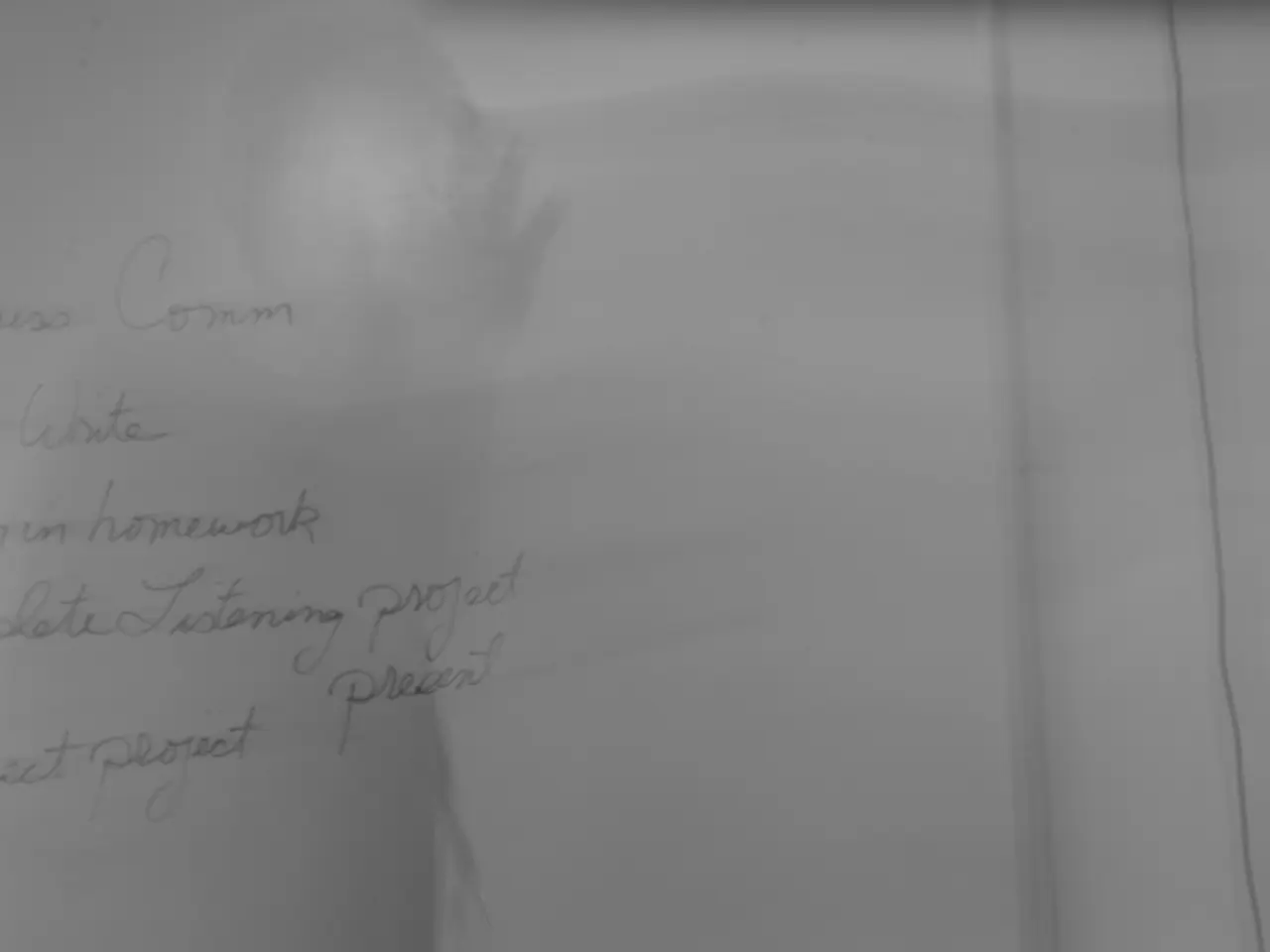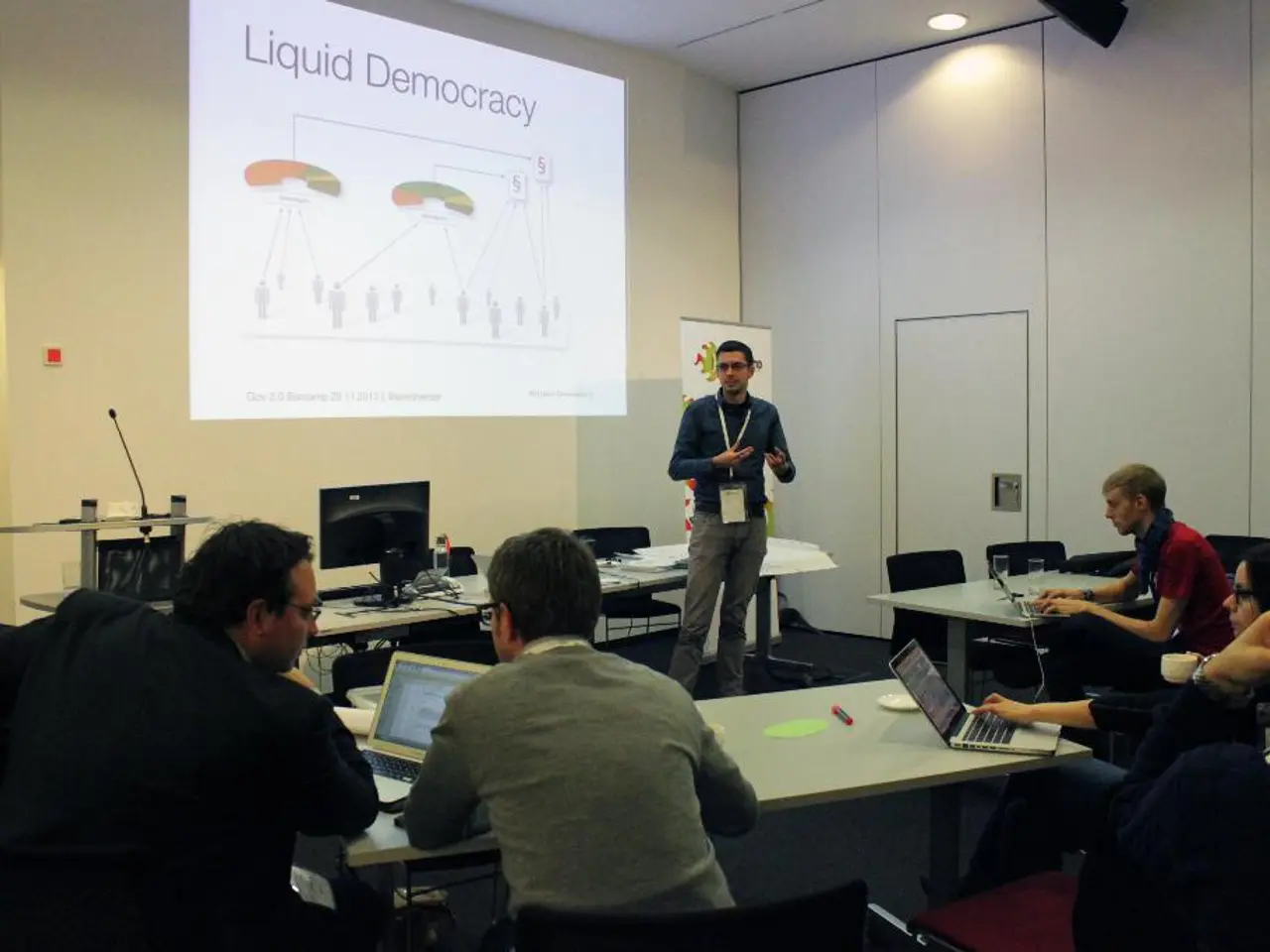Economic clarity is crucial for the IHK reception in Solingen, emphasizing the need for a transparent outlook.
In the Eventfabrik by Mavius in Solingen-Wald, a gathering of 230 guests was hosted by Deputy President Jan Peter Coblenz to discuss current challenges between politics and administration and present solutions for the economic location of Solingen. IHK President Henner Pasch concluded the official part of the evening with an appeal regarding the upcoming elections.
The purpose of the event was to foster a dialogue between the economy and administration, with a particular focus on reducing bureaucratic hurdles that entrepreneurs face. There was great agreement among the panelists on the need to streamline administrative procedures, simplify reporting and licensing requirements, and improve regulatory efficiency.
IHK President Pasch emphasized the necessity for the economy to have a stronger influence on politics. He called upon entrepreneurs to act as multipliers and promote high voter turnout. He also highlighted the importance of Solingen orienting itself towards the best in order to strengthen its competitiveness.
Stefan Kirschsieper, a local entrepreneur, called for early action in one's own company to provide for skilled workers, invest in modern technology, and implement measures to find and bind them. Joerg Puettbach, Managing Director of the BIA, reported on the nearly unmanageable variety of legally prescribed positions in the commissioning process.
The project "Communal Know-how Transfer" was presented by Paul Sommer of the Economic Junior Chamber Solingen. This project aims to improve cooperation through better mutual understanding by enabling economic juniors and administrative employees to gain insights into each other's working environment.
Mayor Tim Kurzbach stated that the city is merely implementing existing laws and ordinances regarding bureaucratic reduction. Despite this, he acknowledged the immense bureaucratic burdens entrepreneurs face and called for early action to address these issues.
Coblenz, in his speech, highlighted the necessity for reducing retention periods from ten to eight years to have no target-oriented effect. He stressed the importance of addressing the root causes of bureaucratic burdens rather than focusing on superficial changes.
Economy and administration should be perceived not as opposites, but as partners, according to the project "Communal Know-how Transfer". This perspective was echoed by the panelists, who agreed on the need for collaboration to create a more business-friendly environment in Solingen.
For precise and updated information on Solingen's current measures and future plans to reduce bureaucratic burdens for companies, it would be necessary to consult local government publications, the Solingen Chamber of Commerce, or North Rhine-Westphalia’s economic ministry. The search results do not provide specific data or plans about this topic.
The discussion emphasized the importance of strengthening the partnership between the economy and administration, with a focus on simplifying administrative procedures, reducing bureaucratic hurdles, and improving regulatory efficiency in the industry and finance sectors, particularly for Solingen's businesses.
Entrepreneurs were urged to collaborate with the administration to provide a more business-friendly environment, and authorities were implored to take early action in addressing bureaucratic burdens through measures such as reducing retention periods and streamlining reporting and licensing requirements.




